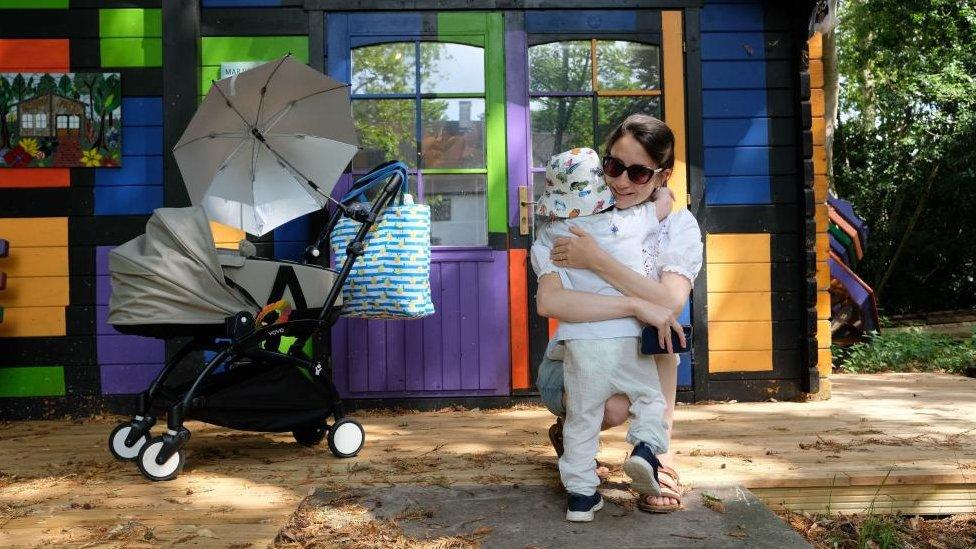Man's tractor death organ donation saves four lives
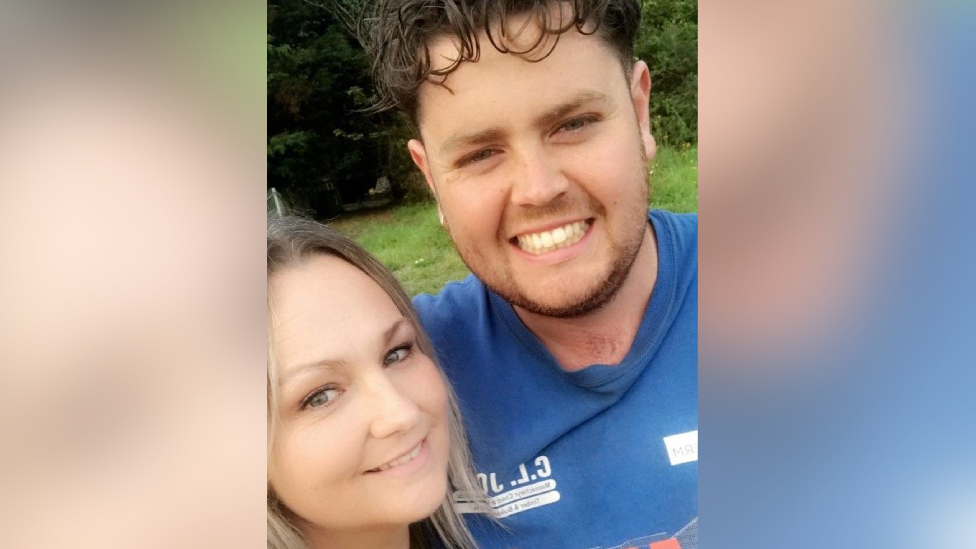
Delyth Owen says she feels like her late partner Macauley lives on in the four people his organs helped to save
- Published
A "hero" 26-year-old man who was killed in a farming accident has helped to save the lives of four others by donating his organs, his partner has said.
Macauley Owen, a groundworks engineer from Anglesey, died in hospital on 6 January 2023 after he was hit on the head by the rear gate of a tractor trailer.
His partner, 43-year-old Delyth Owen, said: "His heart still goes on somewhere, in somebody."
She said she felt like he still lived on in the four people who received organs from him - including one patient who wrote to thank Macauley for saving her life.
Dad in limbo amid three-year wait for new heart
- Published21 December 2023
'A stranger I met at the beach gave me her kidney'
- Published24 April 2023
Organ talk needed says three-liver recipient
- Published26 April 2023
Macaulay's accident, which caused severe brain and chest injuries, occured on 3 January 2023.
He died three days later, on Delyth's birthday.
With no hope of survival, specialist nurses discussed with Delyth and Macauley’s parents the sensitive issue of donating his organs.
'Part of him still lives on somewhere'
It was not something they had discussed but, unbeknown to them, Macauley had signed the organ donor register, twice.
"I'm extremely proud of him... just massive, massive pride," said Delyth.
"He’d actually signed it twice over the years, which made the decision a little bit easier.
"It was a bit of a surprise because writing and computers wasn’t his thing at all.
"For him to have been able to find the register and sign it, it made you giggle really. I’m glad he did it."
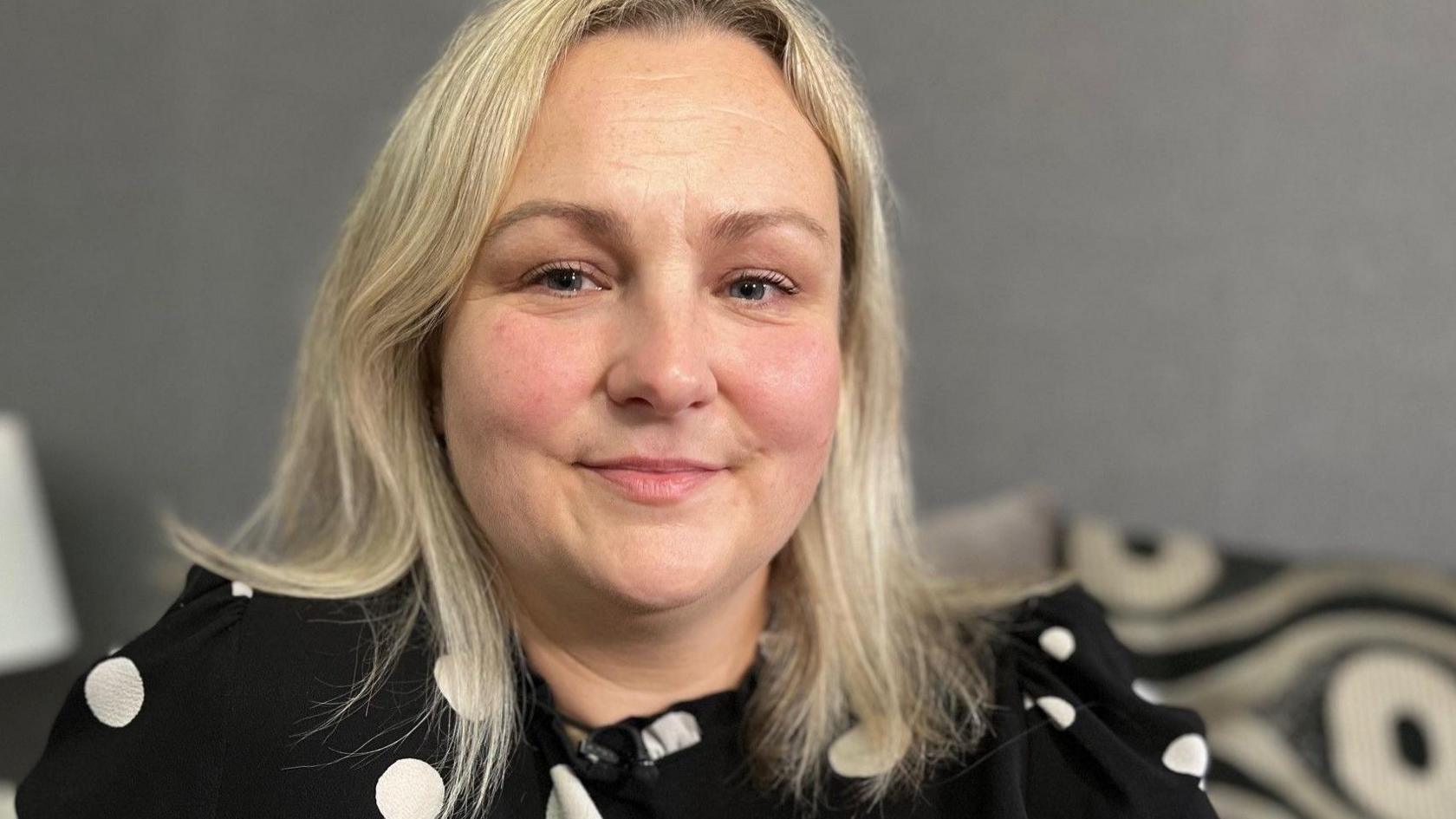
Delyth says she misses Macauley "terribly", but knowing he helped others is a comfort
Among those who received his organs was a woman who contacted Delyth.
In her letter, she wrote: "Words are too small to thank you for the kind… generous act you have done for me.
"Thank you for donating your organ. People like you are [the] most inspiring people in this world.
"I am very sorry for your loss. I am growing stronger, healthier every day and keep your family in my thoughts and prayers always."
It is a letter Delyth cherishes.
"She was a mother and because she’d been ill she wasn’t able to play with her child and be a normal mum," she said.
"So, when you think about it, [Macauley] kind of saved or enhanced two lives there."
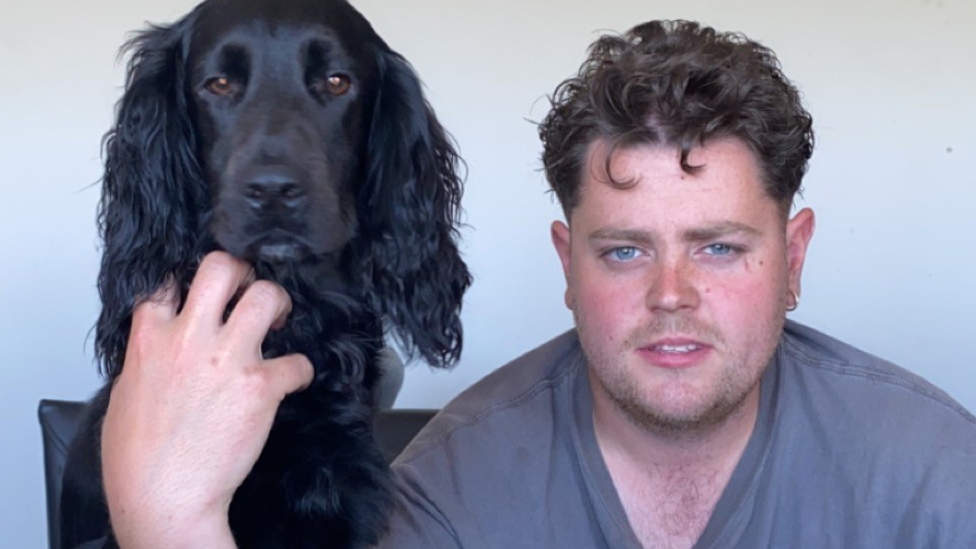
Delyth says Macauley was "sweet, kind and really generous"
Delyth is encouraging people to sign the organ donation register and discuss the issue with friends and family.
Like other families of organ donors, Delyth received a gold heart, which she wears with pride.
"I love wearing it, and then people ask what it’s for. I love just telling them - he was a hero."
Delyth is part of a team who will be walking up Yr Wyddfa, also known as Snowdon, to raise awareness during Organ Donation Week, which starts on 23 September.
Similar walks are also taking place on the UK’s other highest peaks – Scafell Pike, Ben Nevis and Slieve Donard.
Wales has lowest organ donor rate in UK
About 1% of people who die in the UK every year are usually able to donate their organs after death.
The consent rate - those who are approached about organ donation and agree - is 56% in Wales.
This is lower than the rest of the UK - England's rate is 60%, 61% in Scotland, and Northern Ireland has the highest rate at 66%.
In the year leading up to 31 March, 154 residents in Wales received an organ transplant from a deceased donor, while 65 residents in Wales donated their organs after death.
Since 2015, those that have not registered a choice on organ donation are considered to have no objection to becoming a donor.
However, the final decision can often be left to families, if the deceased’s wishes are unclear.
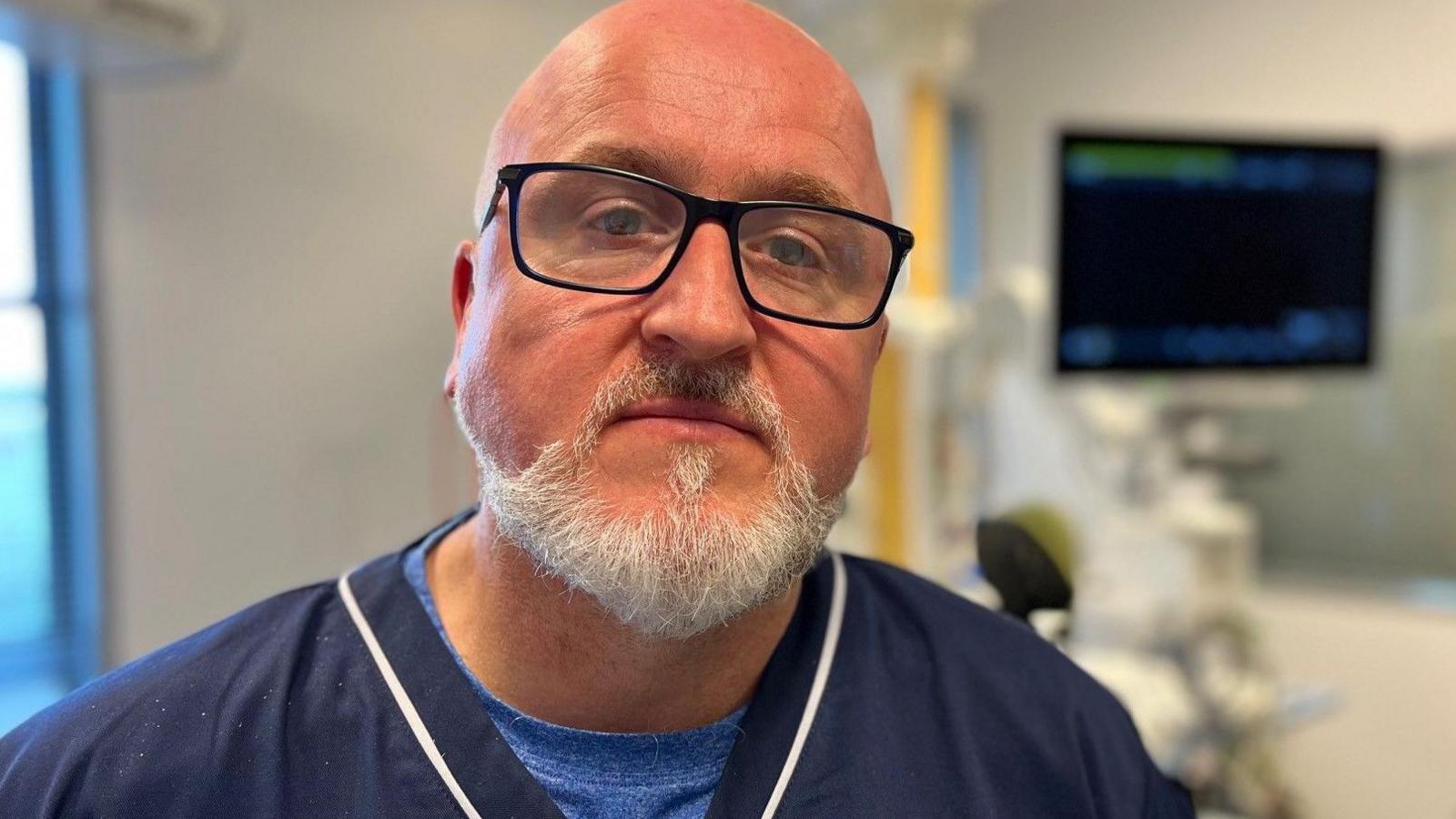
Specialist nurse Phil Jones thinks more awareness campaigns may be needed
There is no consensus as to why Wales lags behind the other UK nations in organ donation consent rates.
Phil Jones, a specialist nurse for organ donation, said rates in north Wales were "a little bit on the lower side at the moment".
He said apathy may be a factor, with Wales having run a deemed consent system longer than other parts of the UK.
"We had such a strong media campaign at the outset, and that was repeated for about two to three years," he said.
However, he said while families are usually aware of the law change, many don't understand what it means.
"We need to get back to the point where maybe we put this out into the public domain again," he said.
"Get the key message out there to get families talking about death and dying, and their organ donation choices."
Related topics
- Published19 September 2024
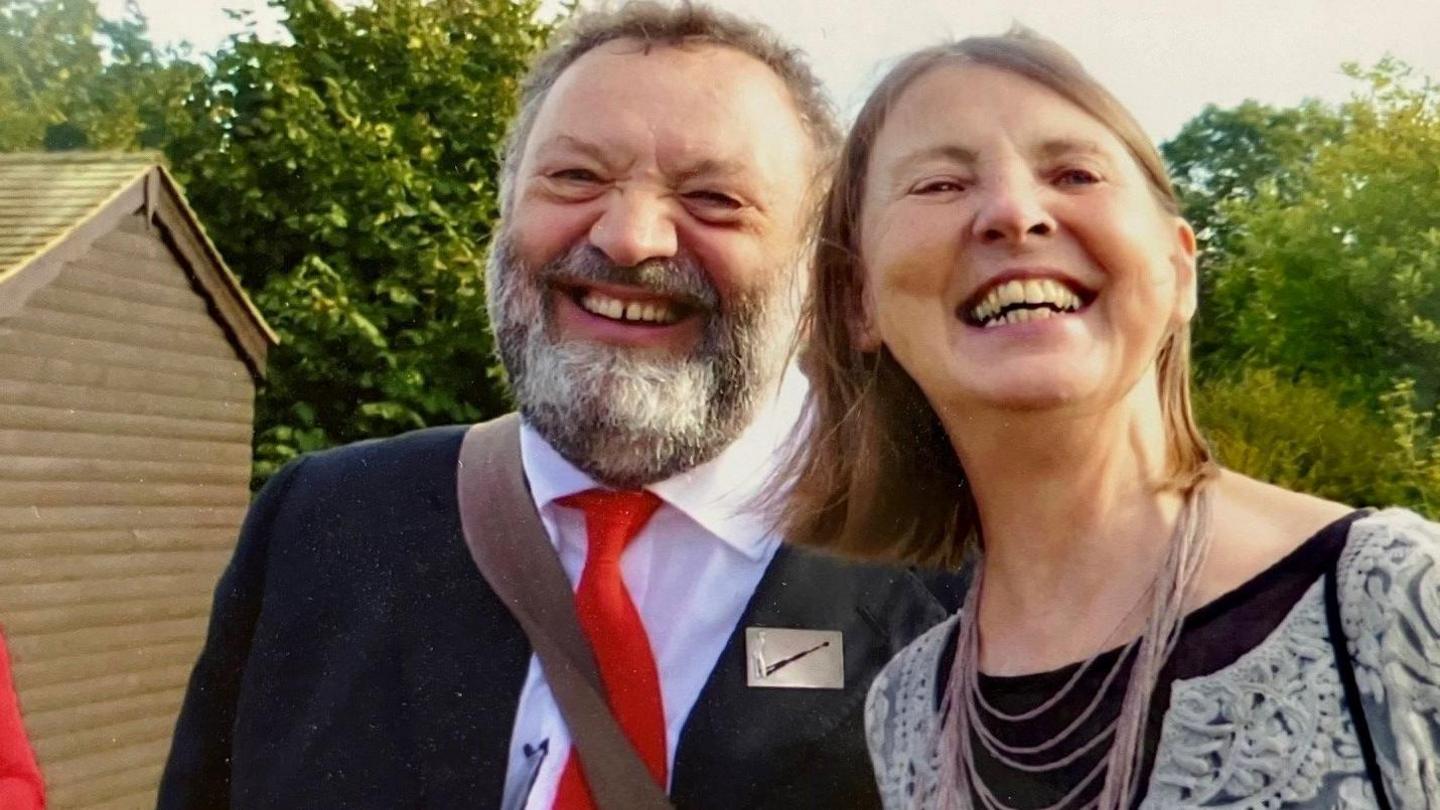
- Published3 May 2024
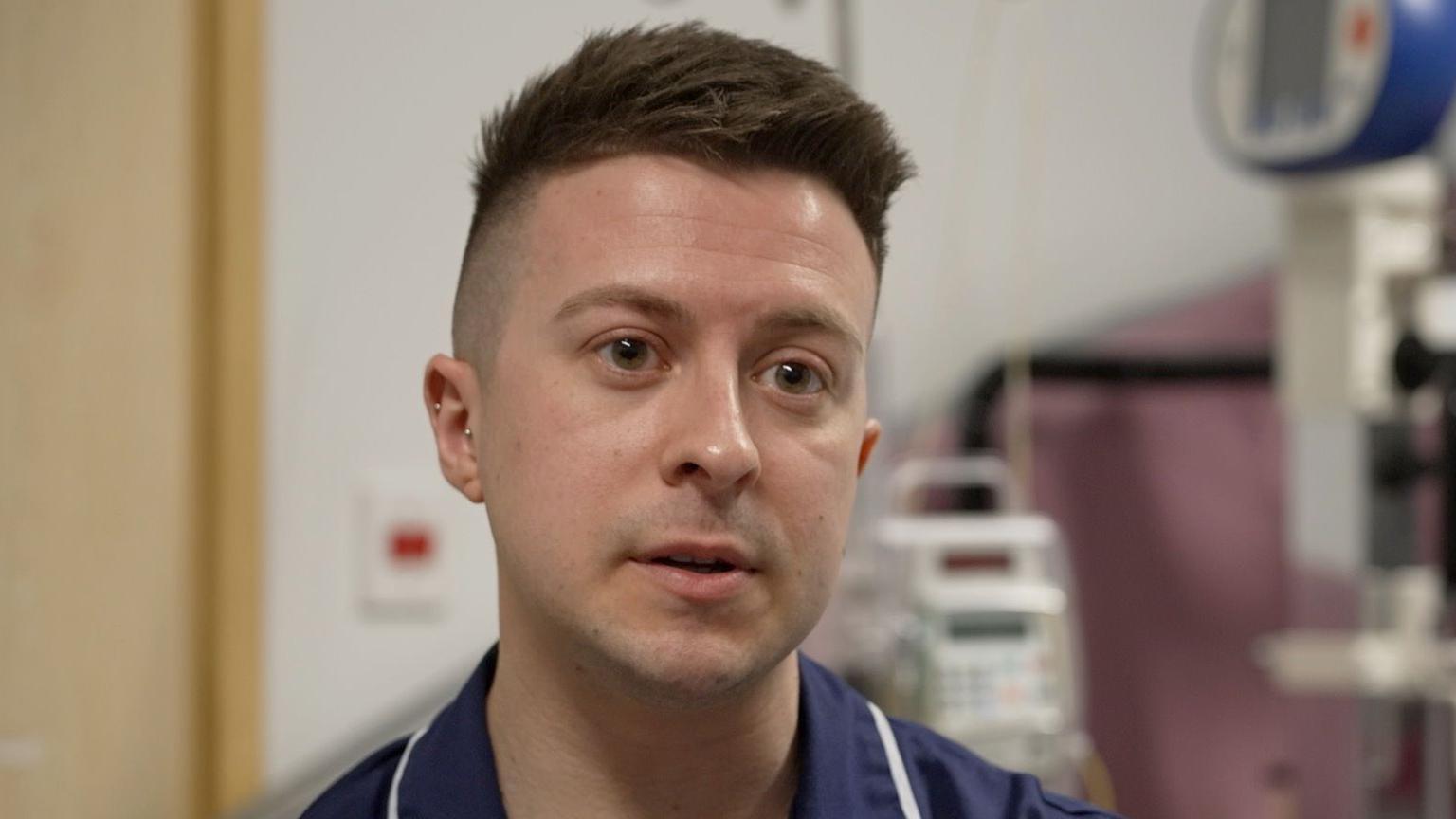
- Published5 September 2023
